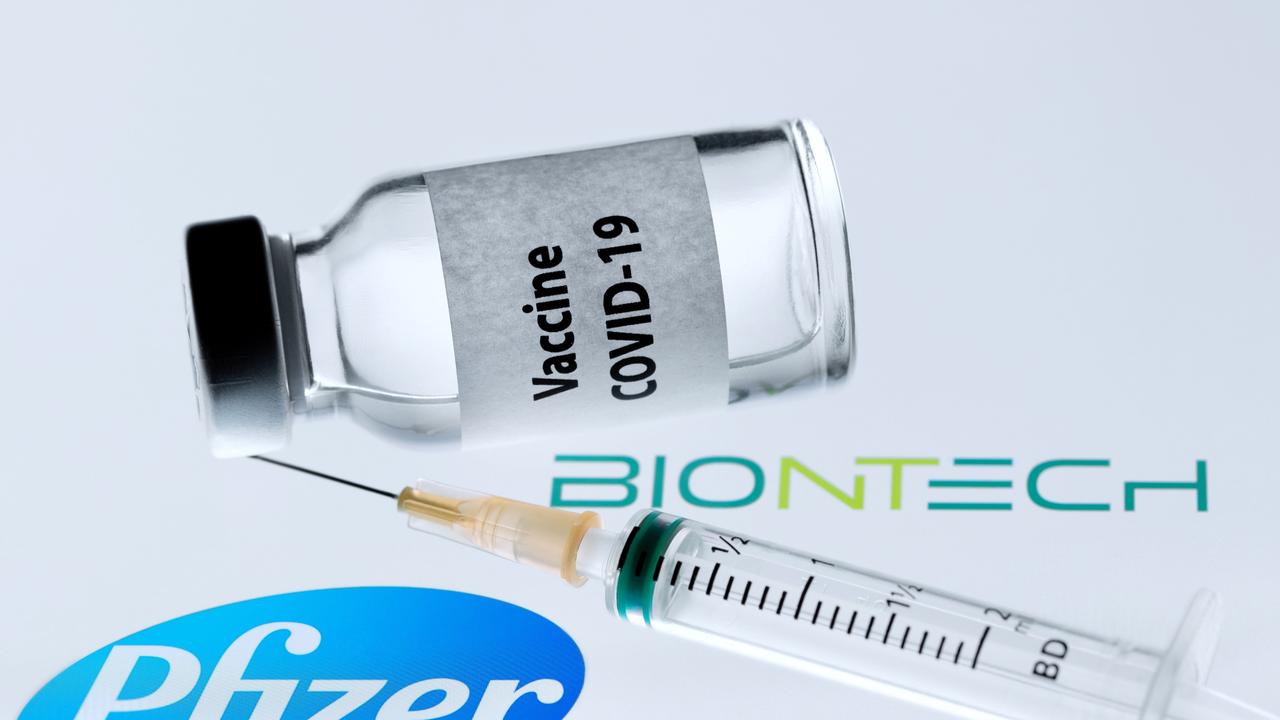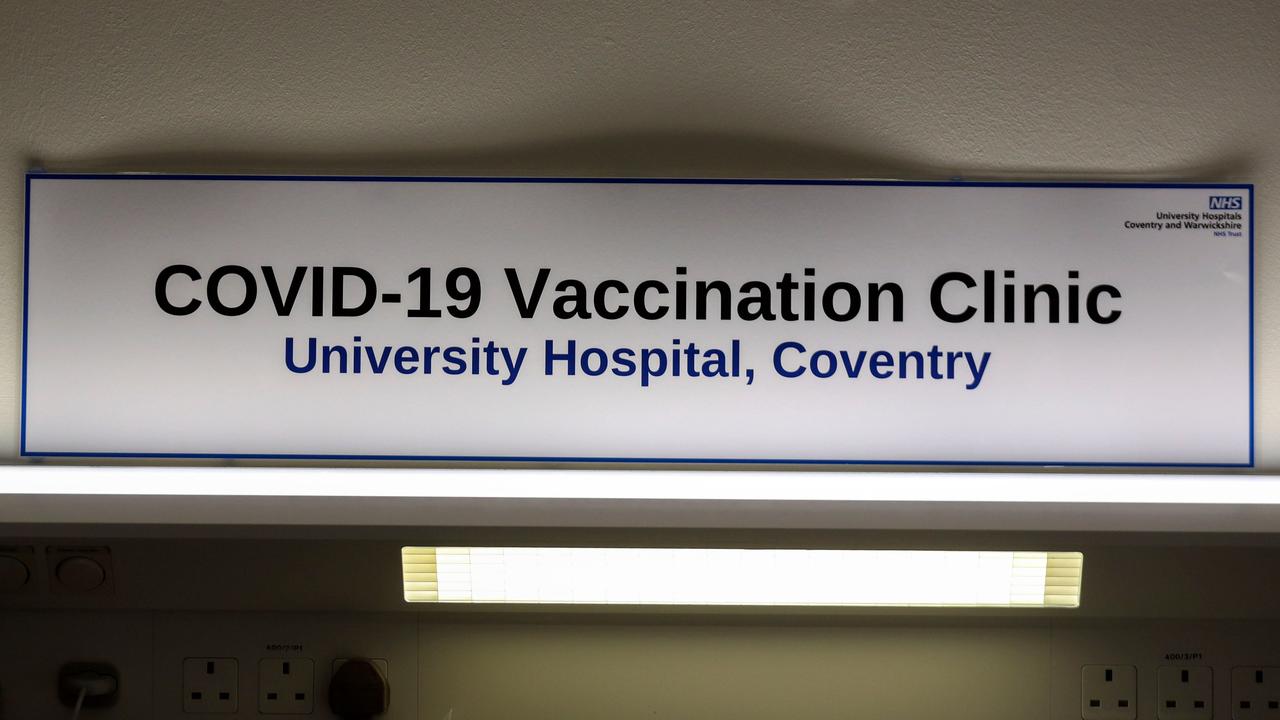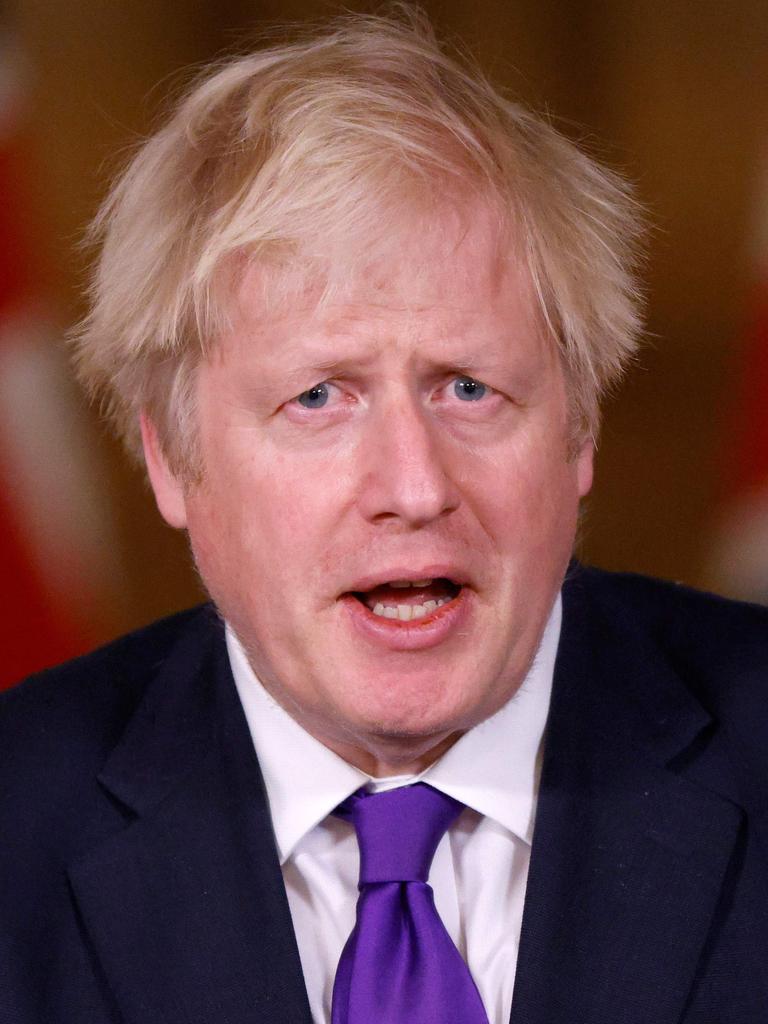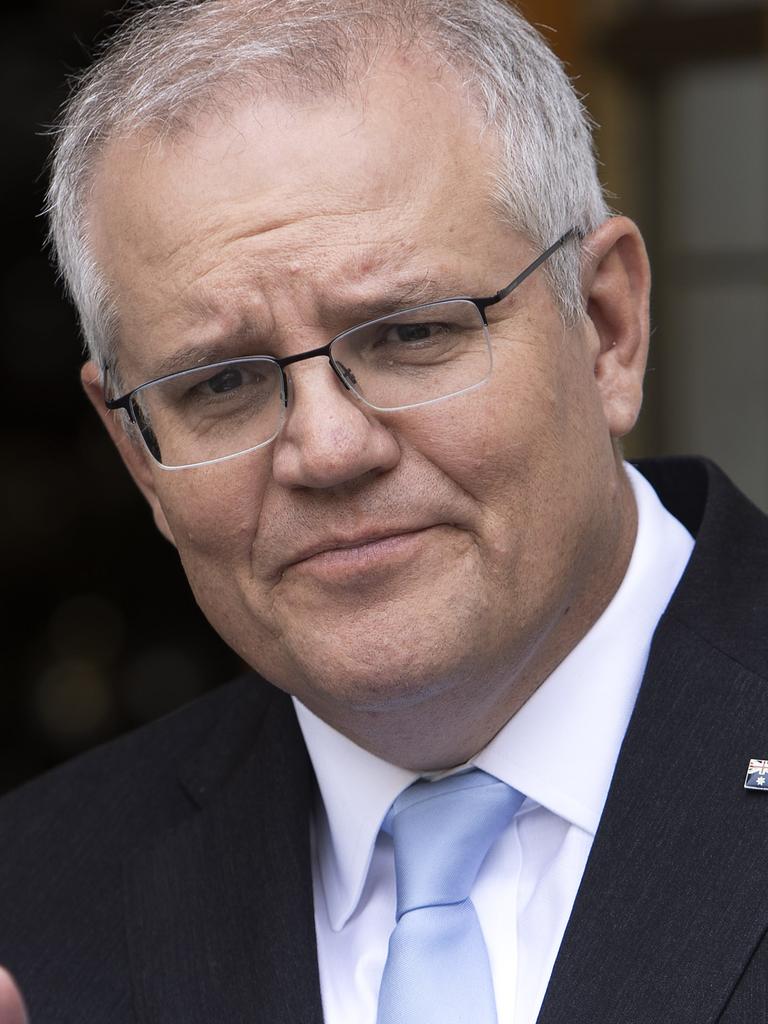First doses of Pfizer coronavirus vaccine arrive in the UK
The first doses of Pfizer-BioNTech’s coronavirus vaccine have arrived on UK shores, with plans to roll out the jab in the coming days.
The first doses of Pfizer-BioNTech’s coronavirus vaccine have arrived on UK shores but Australians will have to wait a lot longer to get the jab.
Britain’s Prime Minister Boris Johnson announced on Tuesday that the nation had become the first Western country to green light a coronavirus vaccination for general use, with 40 million doses ordered by the UK — enough to vaccinate 20 million people, with two shots each.
The first doses will be administered in the coming days to those seen as most at risk of dying from the disease, including the elderly, those with pre-existing conditions and frontline healthcare workers — before a major public rollout.
England’s deputy chief medical officer told BBC News that the first wave of vaccinations could prevent up to 99 per cent of COVID-19 hospital admissions and deaths.
“If we can get through phase one (of the priority list) and it is a highly effective vaccine and there is very, very high uptake, then we could in theory take out 99 per cent of hospitalisations and deaths related to COVID-19,” Professor Jonathan Van-Tam said.
“That is why the phase one list is what it is, that is the primary ambition.”
RELATED: Follow our live coronavirus updates


Prof Van-Tam said it was key to distribute the vaccine “as fast” and at the “highest volume” as possible, but acknowledged there would need to be some flexibility in the list.
The Pfizer vaccine, which is made in Belgium, has been taken to a central hub at an undisclosed location and will now be distributed to hospital vaccination centres around the UK.
It offers up to 95 per cent protection against coronavirus, with each person given two injections, 21 days apart to “complete the vaccination series”.
According to guidance from the UK Government, “protection against COVID-19 disease may not be effective until at least seven days after the second dose”.
While the arrival of vaccine is good news for the UK, the speed of the process has garnered some criticism, including from America’s top infectious disease expert, Dr Anthony Fauci.
“The UK did not do it as carefully,” Dr Fauci told Fox News.
“If you go quickly and you do it superficially, people are not going to want to get vaccinated.”
RELATED: ‘Too late’: Crushing virus vaccine news
He later apologised after the UK defended its process, telling the BBC that he has “a great deal of confidence in what the UK does both scientifically and from a regulator standpoint”.
“Our process is one that takes more time than it takes in the UK. And that’s just the reality. I did not mean to imply any sloppiness even though it came out that way,” Dr Fauci said.
In Australia, Health Minister Greg Hunt welcomed the development, confirming the Federal Government is on track to offer vaccinations to health workers and aged care residents in March.
“We are moving quickly but safely and we are making sure there are no compromises, because the safety of Australia is the number one priority,” Mr Hunt told reporters on Thursday.
“Australia is doing magnificently but we won’t be truly safe at home until the world is safe. That is why vaccines at home and abroad are so important.”
RELATED: Sudden blow to COVID vaccine hopes


Prime Minister Scott Morrison also welcomed the news, saying the UK would provide a vaccine test run for the international community and that Australia would be able to learn from their experience.
But, he warned, it would not simply “cut and paste” approaches from other nations.
“We have got to get that balance right and we will implement the vaccine here in Australia according to Australian needs and Australian conditions and the challenges and opportunities we have here,” the PM said.
“As we move into the vaccine, our first priority is that it be safe. It must be safe for Australians and that is what they would expect of us. The UK will need to deal with their situation and their circumstances in their way.”




